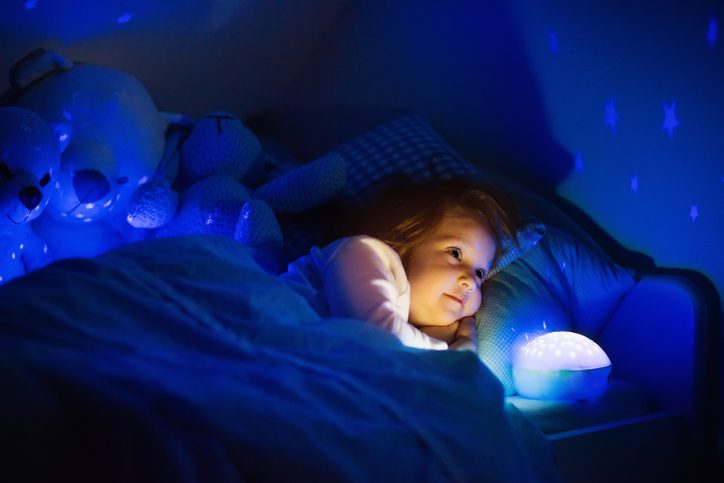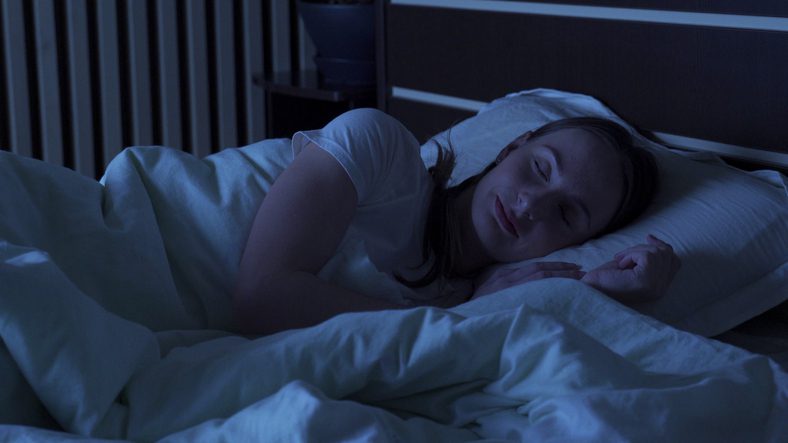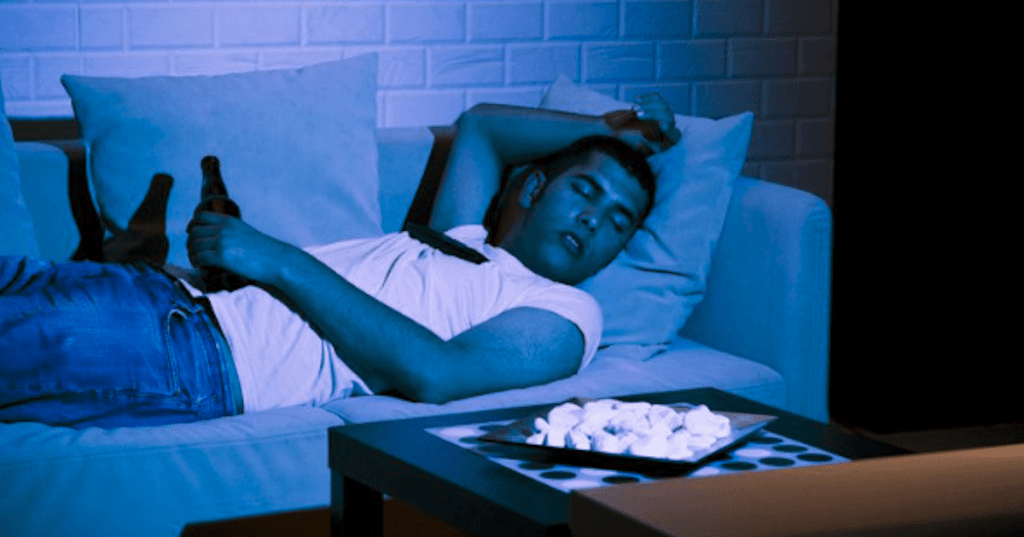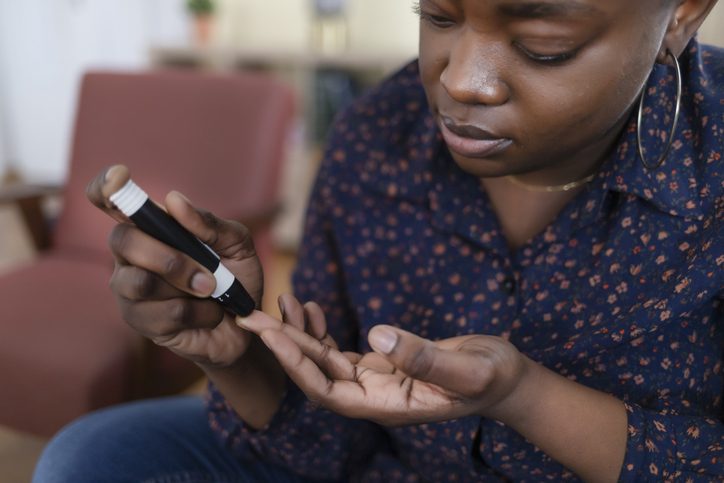Since childhood, most of us have dealt with some degree of fear of the dark. It’s natural, and probably down to evolution, to fear not being able to see what might be coming for us – even though we know nothing is probably there.
So, our natural inclination is to have some kind of light in our sleeping space. We might choose ambient light from outside, the glow of the television, or a small night light, but according to science, we should train ourselves to quit.

Image Credit: iStock
That’s because the findings of a small-but-convincing study out of Northwestern University suggest that even a moderate amount of light in the room can have adverse effects on cardiovascular and metabolic health.
Even Dr. Phyllis Zee, the study’s lead author, raised her eyebrows at the outcomes.
“I was surprised that even this fairly, I would say, small amount of light just getting through the eyes to the brain still had such notable effect.
This is about enough light that you could maybe see your way around, but it’s not enough light to really read comfortably.”
The study joins other findings that suggests ambient light at night could have large negative impacts like exposing people to chronic disease.
In it, participants spent one night sleeping in a dark room, and the following night slept in a room illuminated by an overhead light. Researchers ran tests while they snoozed, recording brainwaves, measuring heart rates, and drawing blood every couple of hours.
In the morning, both groups received a big, sugary breakfast to see how their bodies responded to the spike in glucose – and the findings are more than a little interesting.
The group who had been exposed to light overnight had shown elevated heart rates as they slept, and had more trouble regulating their blood sugar in the morning as well.
There is evidence that light can disrupt our natural metabolism.

Image Credit: iStock
The study’s participants believed they’d slept fine, and researchers failed to find suppressed melatonin levels. Melatonin is a hormone that helps with circadian rhythms and promotes sleep, but other studies have also linked diseases like cancer and diabetes to low melatonin levels in the past.
Zee believes this only proves that the minimal light used in this particular study wasn’t bright enough to suppress melatonin levels.
They do believe, however, that even the small amount of light they were using was enough to activate the body’s fight or flight response, which is supposed to chill out while we sleep.
In a dark room, our heart rate and respiration would decrease. In the room with the light, our nervous system responded by staying more active and alert throughout the night.
“It’s almost like the brain and the heart knew that the lights were on, although the individual was sleeping.”
These findings are verified by Dr. Chris Colwell, who studies the mechanisms underlying circadian rhythms at UCLA.
“There’s a lot of coordinated actions that have to occur in order for us to get a good night’s sleep and the autonomic nervous system balance regulates that.”
So, even though the findings of this small study were not dramatic, any changes to your good night’s sleep aren’t ideal.
The lights could increase your risk of chronic illness.
There are more than a few studies out there that confirm that disrupted sleep makes it harder for our bodies to regulate blood glucose levels. Colwell points out that this study only had people there one or two nights, and that in real life, harmful effects would be cumulative.
“That’s going to increase the risk of chronic diseases like insulin resistance, diabetes, and other cardiometabolic problems,” confirms Dr. Charles Czeisler, chief of Brigham and Women’s Hospital’s Division of Sleep and Circadian Disorders.
One large study that included over 40,000 women found that sleeping with the television or other light on was associated with an increased risk of gaining weight over a five-year period.
Czeisler himself recently published a study of his own that also looked into the metabolic results of continued sleep disruption.
In it, he and his team concluded that sleep deficiency and exposure to light while asleep are equally impactful – in a negative way – when we’re talking about health.
“People think that as long as they fall asleep and are unconscious, it’s not having physiological effects, but that’s simply not true.”

Image Credit: iStock
Which is all to say, it might be time for most of us to rethink how we fall asleep – and stay asleep – even during those years when our sleep is regularly disrupted by children, etc.
It matters to your day-to-day health more than we probably realize. Turning off the television, grabbing some blackout curtains, or overcoming that fear of the dark could be a small but significant way to make a big change.







